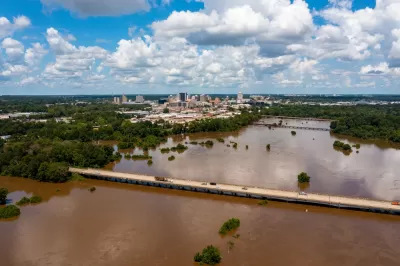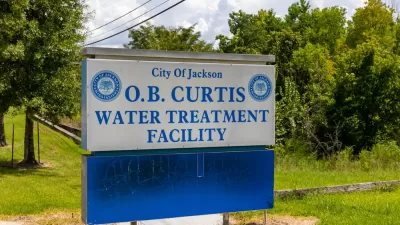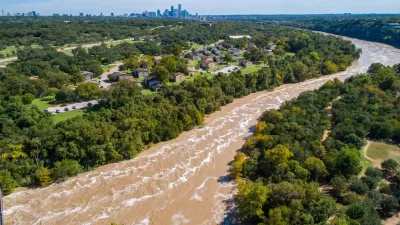Planning and funding are both in dire need in Jackson, Mississippi. The question is who should be in charge of all the planning and funding.

All eyes are still on Jackson, Mississippi, where an August emergency left an estimated 180,000 residents without drinking water.
Since then, local, state, and federal officials have been jockeying to place blame and position themselves favorably for the future. Annie Snider first reported, for example, that Rep. Bennie Thompson (D-Jackson) is seeking $200 million in funding for the city that would be allocated through the Environmental Protection Agency, thus bypassing the state of Mississippi entirely.
In the same article, Snider reports that state and local officials estimate the cost of repairing the city’s water system could be as much as $1 billion. “The city has not completed a long-term plan for addressing its problems. Thompson said $200 million is ‘what appears to be reasonable’ now, in the absence of a plan,” writes Snider.
Writing for the Mississippi Free Press in a separate article, Nick Judin details the back and forth between state and local officials as they push for funding to fix Jackson’s emergency for the long term. Jackson Mayor Chokwe A. Lumumba, for example, “has often complained of the Mississippi Legislature’s ‘paternalistic’ authority over infrastructure funds, both those derived from the federal government and from Jackson’s own citizens,” writes Judin.
Also according to Judin, Rep. Thompson is pushing for a planning process to identify the problems that caused the failure and “[extricate] itself from the depths of infrastructure collapse.”
FULL STORY: Rep. Bennie Thompson Seeks $200 Million Federal Aid For Jackson Water System

Alabama: Trump Terminates Settlements for Black Communities Harmed By Raw Sewage
Trump deemed the landmark civil rights agreement “illegal DEI and environmental justice policy.”

Planetizen Federal Action Tracker
A weekly monitor of how Trump’s orders and actions are impacting planners and planning in America.

The 120 Year Old Tiny Home Villages That Sheltered San Francisco’s Earthquake Refugees
More than a century ago, San Francisco mobilized to house thousands of residents displaced by the 1906 earthquake. Could their strategy offer a model for the present?

Opinion: California’s SB 79 Would Improve Housing Affordability and Transit Access
A proposed bill would legalize transit-oriented development statewide.

Record Temperatures Prompt Push for Environmental Justice Bills
Nevada legislators are proposing laws that would mandate heat mitigation measures to protect residents from the impacts of extreme heat.

Downtown Pittsburgh Set to Gain 1,300 New Housing Units
Pittsburgh’s office buildings, many of which date back to the early 20th century, are prime candidates for conversion to housing.
Urban Design for Planners 1: Software Tools
This six-course series explores essential urban design concepts using open source software and equips planners with the tools they need to participate fully in the urban design process.
Planning for Universal Design
Learn the tools for implementing Universal Design in planning regulations.
Clanton & Associates, Inc.
Jessamine County Fiscal Court
Institute for Housing and Urban Development Studies (IHS)
City of Grandview
Harvard GSD Executive Education
Toledo-Lucas County Plan Commissions
Salt Lake City
NYU Wagner Graduate School of Public Service





























